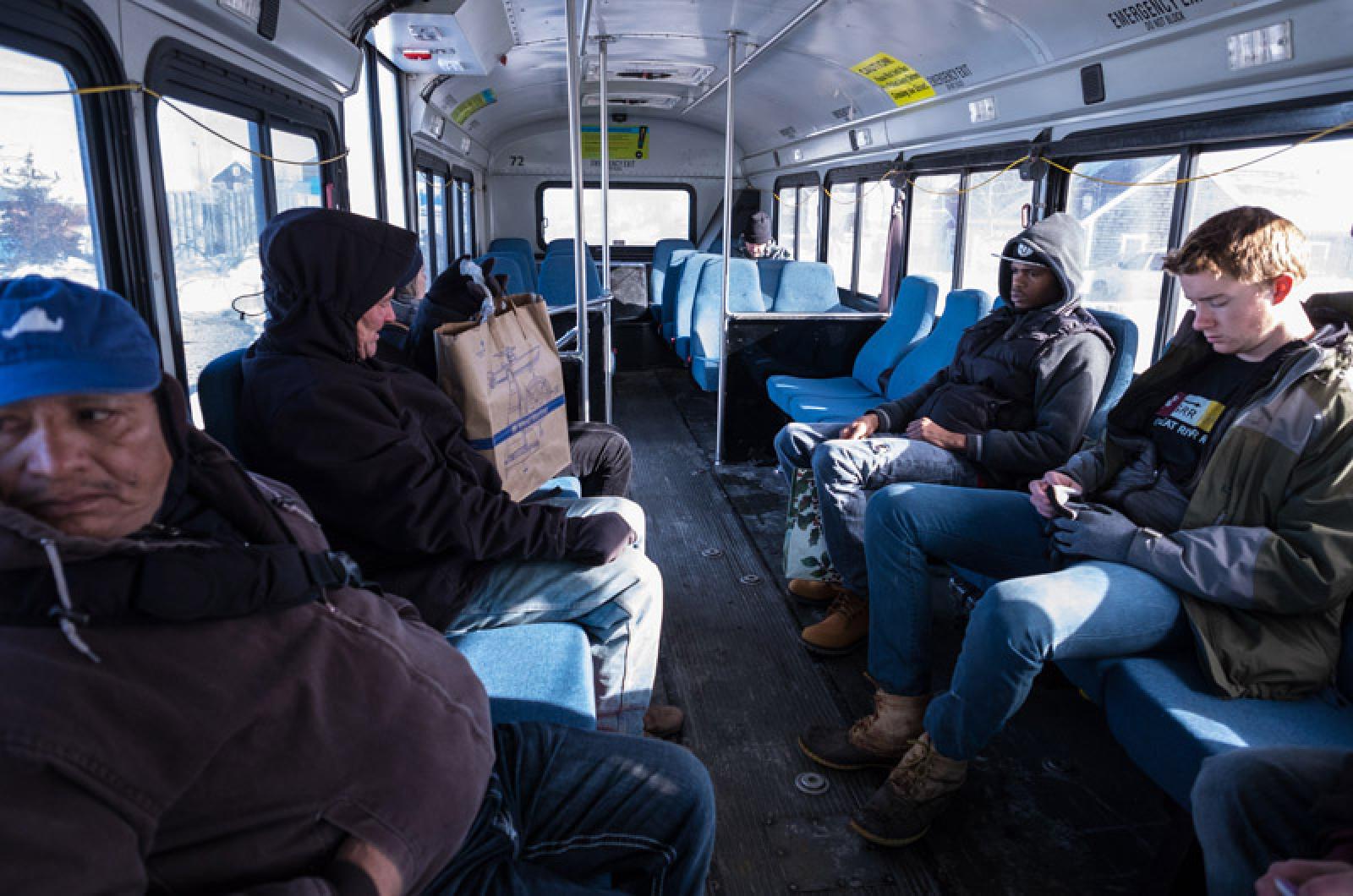The Vineyard Transit Authority (VTA) is moving full-speed ahead to transform its bus fleet to electric battery-powered buses. The VTA board of directors voted in December to begin the transition, and the agency is seeking state funding in the next fiscal year to begin replacing the current fleet of clean diesel buses with electric vehicles.
VTA administrator Angela Grant told the Edgartown selectmen this week about plans to replace the diesel fleet with electric vehicles, using state transportation money. The transit authority will increase its usual request for funding to account for the extra cost of the buses, estimated at $150,00 to $250,000 more apiece, Ms. Grant said. This year the VTA requested $2.4 million in state funding; next year it will request $3 million, she said.
“I fully believe we can make this work here,” she told the Gazette later. “It’s just a commitment to change. The best path for the VTA in terms of viability, long term, and reduced maintenance, and environmentally, is going electric.”
She said the VTA is slated to replace four buses in fiscal year 2018. “If they only give us funding for the equivalent of four diesel buses, we would just purchase three electric buses,” she said.
The cost of electricity to charge the bus batteries, at current rates is about the same as the cost of diesel fuel.
“The savings isn’t there, it’s in the maintenance costs,” Ms. Grant said. “Diesel buses, there’s nothing cheap about operating them, when you have to replace parts.” She said some components which are part of routine maintenance cost as much as $6,000.
The electric buses under consideration are built by the California company BYD, which stands for Build Your Dreams. Several California transportation systems are already running the electric buses.
The buses are equipped with iron phosphate batteries, not the lithium ion batteries which have been associated with sporadic fires in electric vehicles and electronic devices. The batteries are guaranteed to last the 12-year life cycle of the new buses.
Ms. Grant sketched a picture of the new electric fleet:
The buses are approximately the same size as the current fleet, but can hold more people because they don’t need room for a rear diesel engine.
One of the most difficult hurdles in changing to an all-electric fleet will be installing infrastructure along the routes. The buses have a range of 170 miles. With some routes traveling as much as 300 miles per day, the buses will need to partially recharge during the routes. In some cases, the buses will be charged by a large charging pad which buses will park on during loading and unloading. The pads provide an inductive charge that will replenish 10 to 15 per cent of the battery power during each stop. Other charging stations will provide power by a conventional plug in apparatus.
When the buses return to the VTA garage in the Martha’s Vineyard Airport business park, they will plug in overnight, with a software program determining how to charge the buses when electricity is the least expensive.
The VTA is counting on a variety of grants to pay for infrastructure construction. Ms. Grant has submitted an $18.4 million dollar request for funding from the fines paid by Volkswagen as part of a $2 billion legal settlement that followed the recent emissions scandal. Other funding could come from federal and state agencies which have money available to promote renewable energy resources.
The public will be able to use part of the planned Islandwide charging infrastructure for their own private vehicles, Ms. Grant said. She believes the charging stations will promote transformation of some other fleets, including small and mid-sized delivery trucks.
Martha’s Vineyard is ideally suited for electric vehicles, Ms. Grant said. “Geographically, we’re suited for running transit well,” she said. “A lot of our routes are a half hour. The segment times, we’re blessed with that component.”
Ms. Grant has begun a series of visits to Island government boards to begin the process of explaining the electric bus initiative, and begin discussions about charging stations.
“The towns can have some solid input in terms of how much they want to participate, or if they don’t want to participate,” she said.
At their meeting Monday, Edgartown selectmen greeted the proposals enthusiastically.
The transit authority operates 14 routes through the six Island towns year round. The authority operates a total of 32 buses, with as many as 28 in service during peak summer periods.
Last year the VTA served 1,364,768 passengers. Ridership has grown 23.1 per cent since 2011.
“It’s an exciting time for the VTA,” Ms. Grant said.







Comments (20)
Comments
Comment policy »